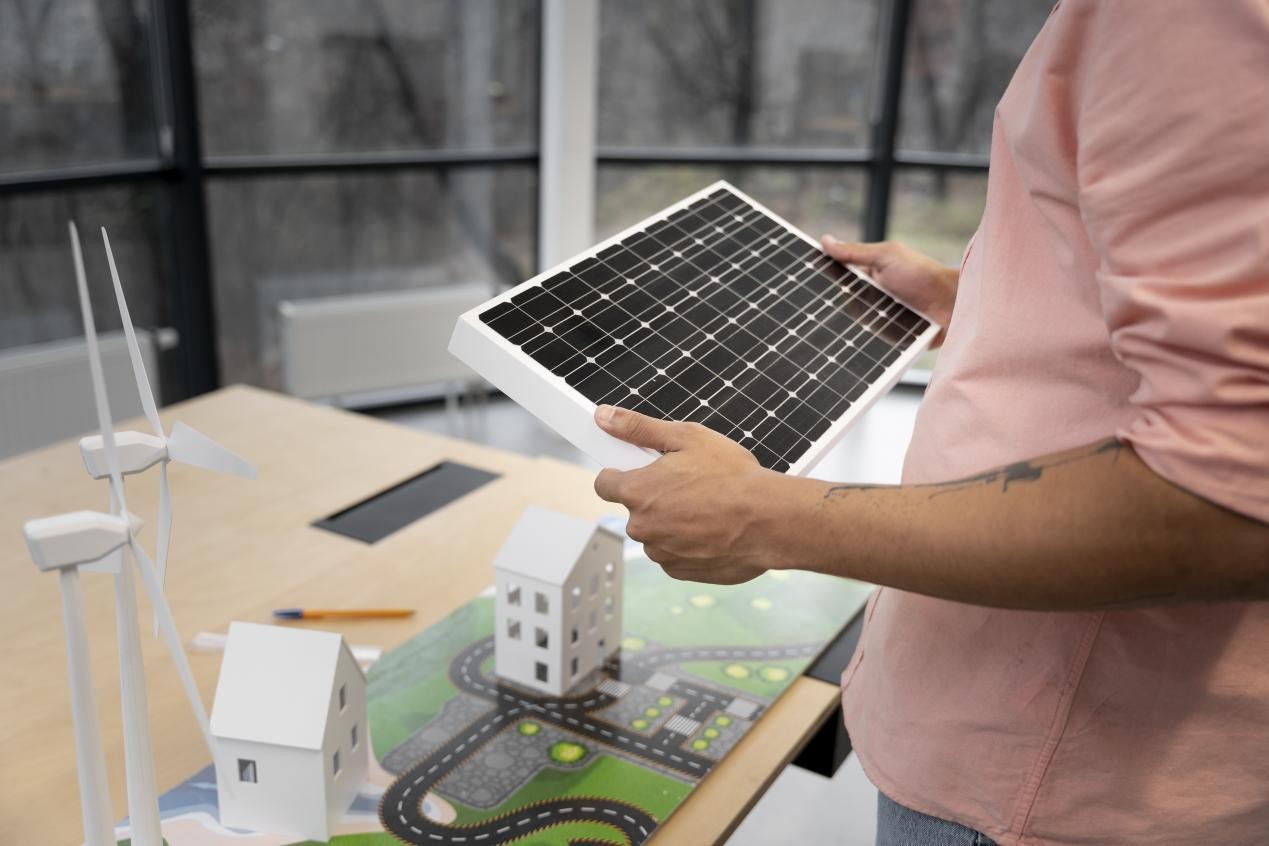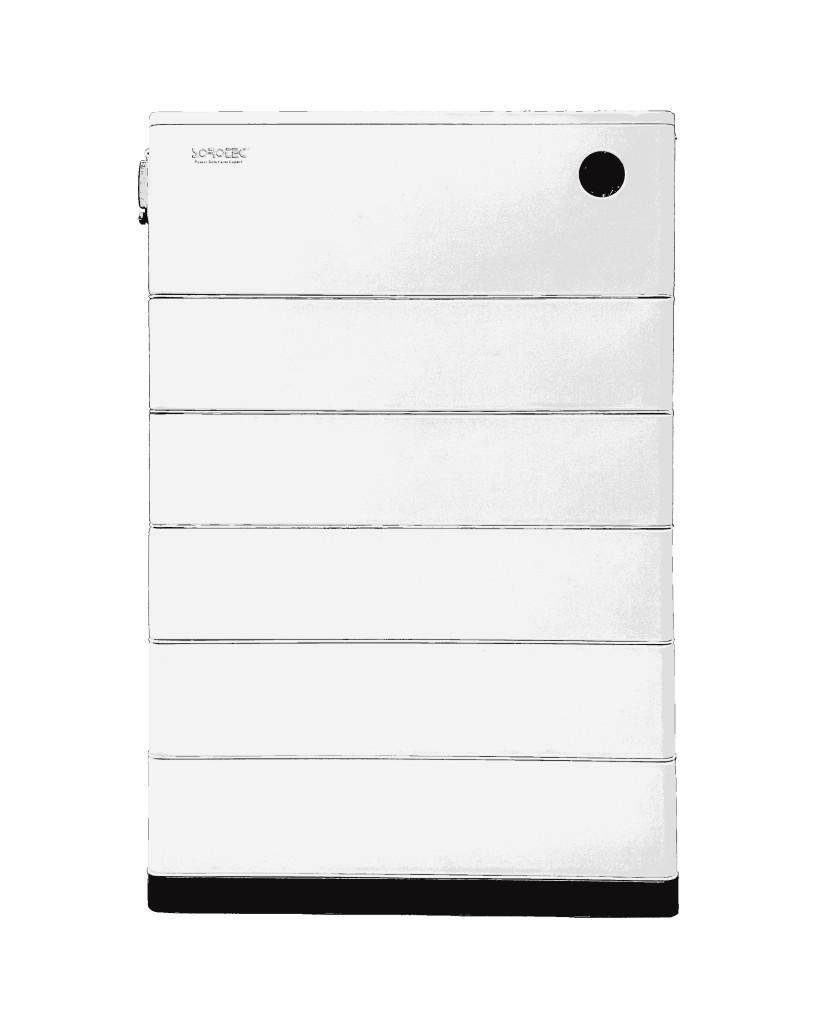Battery storage is essential for increasing solar panel efficiency by storing more energy produced during periods of high sunlight to use for low sunlight and high demand. This makes load allocation seamless and guarantees power supply stability between the microgrid and parts of the power system during any kind of instability or lack of utility power from the grid.

The Integration of Battery Storage with Solar Panel Systems
Why Combine Battery Storage with Solar Panels?
Combining battery storage for solar panels is changing the way we look at energy systems together, providing a synergy that allows one to improve the efficiency and reliability of the other. Together, they enable the most efficient utilization of renewable power, with minimal reliance on the grid.
One product that exemplifies this integration in solar energy generation and storage is a hybrid solar energy storage inverter, for instance, the hybrid solar energy storage inverter with built-in MPPT solar chargers and battery equalization functions which work seamlessly together.
What Should You Consider When Adding Battery Storage?
There are several considerations involved in integrating with battery storage. Ensure your solar panels are compatible with your solar battery system. Reverse connection protection is one of the features that you need to ensure the safety of your setup. The next point is the battery.
For example, LiFePO4 has ultra-long cycling and many designs of multiple protectors for photovoltaic energy storage. Moreover, systems with LCD touch screens and remote monitoring functionality offer convenient interfaces to enable efficient functioning.
How Battery Storage Improves Solar Energy Efficiency
Can Battery Storage Solve Solar Power Intermittency?
A major issue in generating solar power is its intermittence—solar panels generate electricity only when they are exposed to sunlight. Integrating a dependable battery comprise, you can store excess capacity produced at desired sun hours and use it during overcast suffer or nocturnal.
Anti-island protection ensures that energy storage inverters have a stable performance even if the solar input fluctuates from time to time and the proper functions of its overwrite by adding DC Overcurrent Protection. This not only ensures constant electricity but also decreases the dependency on utility grids.
How Does Storing Excess Energy Benefit You?
Storing excess solar energy enables you to use it at a later time, which can maximize the self-consumption of your PV system and reduce its overload. Even more sophisticated systems allow for flexible rate tariffs where you can charge batteries on-grid at night when rates are lower and discharge them during the day when rates are higher.
Things like modular installation and easily pluggable connectors simplify expanding your system when your energy needs grow. Such flexibility guarantees that your investment will be scalable and can stand the test of time.
The Economic Impact of Battery Storage in Solar Systems
How Can You Achieve Cost Savings with Battery Storage?
If you spend more on your bills than you would like to, investing in battery storage systems can cut costs by reducing grid reliance. Intelligent load management technology lets you use your stored solar energy first before pulling power from the grid. In the long run, this makes a significant difference. Modern batteries are designed to last—blending a lifespan of up to 6,000 cycles of use—and proving a significant ROI with regards to mileage range.

Are There Incentives Supporting Battery Storage Adoption?
Countries across the globe have begun issuing incentives in a variety of forms for renewable energy adoption. These range from tax credits, incentives, and cash for solar-plus-storage deployments. These policies provide returns that can help reduce start-up costs at the same time you're investing in a green future.
SOROTEC’s Innovative Solutions for Solar and Battery Integration
Overview of SOROTEC’s Product Line for Solar Applications
If you want to go one step further, high-quality lithium-ion batteries are key components of solar energy systems for home use. They are useful for storing excess energy being produced from solar panels so that power will never go out even during non-sunny hours.
As an example, the LiFePO4 battery series provides ultra-long cycle life —up to 6,000 cycles and a ten-plus year service life. They are specially designed with internal protections from overcharge, over-discharge as well as short circuit, making them a safe and reliable option. Moreover, they feature a compact design that allows for wall-mounted installation and is space-saving with high performance.
Commercial-grade battery Systems for Large-Scale Installations
Commercial-grade systems for energy storage are used by businesses or for high-efficiency house installation situations. Such systems are designed for very high power, often conserving power. All-in-one systems have 5.12KWH to 30.72KWH capacity, natural cooling, ultra-low operating noise (<25dB), and are perfect for industrial applications. Its built-in MPPT technology effectively converts solar energy from solar panels to maximize the energy output.
Features that Enhance Efficiency and Reliability in SOROTEC Products
These products are all about efficiency and reliability. State-of-the-art features such as MPPT (Maximum Power Point Tracking) maximize the extraction of energy from solar panels with fluctuations of sunlight.
For battery lifespan, battery equalization functions can extend battery life, making battery equalization long-term cost-effective. In addition, the availability of remote monitoring through an app/website allows users to access their energy systems and manage them with ease.
Future Trends in Solar Panel Efficiency with Battery Storage Advancements
Emerging Technologies in the Field of Energy Storage
What is the future of solar storage? This field is constantly being pushed by new technologies. Novel solid-state batteries may offer far greater energy densities as well as much shorter charge times if they run the same lithium-ion chemistries that help deliver these benefits.
Additionally, in battery management systems, intelligent collaboration helps in the dynamic change in values such as undervoltage or overload protection. Such improvements not only enhance the performance of the systems but also allow better and more effective safety breakthroughs.
The Role of AI in Optimizing Solar-Battery Systems
As it turns out, Artificial Intelligence (AI) is a game-changer that optimizes solar-battery systems. AI accurately predicts trends in generation and consumption based on patterns in electricity usage and weather forecasts. It allows for intelligent load management and optimal use of stored energy. AI-powered systems can also help to catch problems before they arise, promoting a smooth operation.
If you're looking for cutting-edge solutions tailored to your needs, SOROTEC offers advanced technology combined with user-friendly features.
FAQs
Q1: What makes lithium-ion batteries ideal for residential use?
A: Their high cycling life, compact design, and built-in protections make them reliable and efficient for home solar systems.
Q2: How do commercial-grade battery systems differ from residential ones?
A: They are designed for higher capacities with features like modular installation and advanced cooling mechanisms suitable for industrial applications.
Q3: Can AI integration significantly improve solar battery system performance?
A: Yes, AI enhances efficiency by optimizing load management and predicting usage patterns based on real-time data analysis.
Post time: Mar-28-2025






